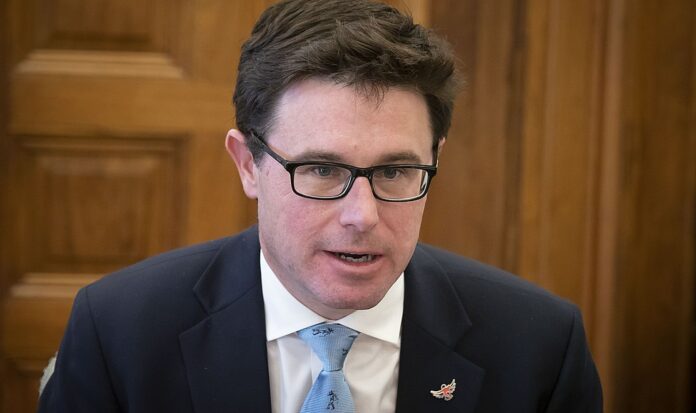Shadow ministry announcements paused as Liberals and Nationals reopen talks to reunite the Coalition
The bitter split between the Liberals and Nationals has stalled the announcement of shadow ministry portfolios, with both parties returning to the negotiating table in a bid to mend the fractured Coalition.
Just two days after their shock separation, Liberal leader Sussan Ley and Nationals leader David Littleproud have paused finalising their frontbench teams, raising hopes of a potential reconciliation. Both had already begun allocating shadow portfolios to colleagues before a last-minute intervention halted the process.
Littleproud, speaking at a hastily arranged press conference, said he had postponed announcing his party’s shadow spokespeople after Ley offered to reconvene the Liberal party room to formally consider the Nationals’ four policy demands. “I thank her for that,” he said. “As a consequence, I’ve sent those spokespeople home as a sign of good faith.”
Ley, in turn, said she welcomed the Nationals’ return to “good-faith negotiations,” confirming she had both written to and met with Littleproud earlier in the day. “The Liberal Party will consider [the Nationals’ proposals] utilising our party room processes,” she said.
The four demands include support for nuclear energy and a $20 billion regional future fund—proposals Ley could not commit to before the Liberals’ post-election policy review. Another sticking point was Littleproud’s insistence on breaking shadow cabinet solidarity and being named deputy opposition leader, a post traditionally reserved for a Liberal.
The initial break-up shocked even senior figures in both parties. Some feared that announcing separate shadow ministries would harden the division beyond repair. “Once you put people in place, it becomes a lot harder to take those positions away,” a Coalition MP told the ABC.
Embed from Getty ImagesFormer Liberal prime ministers have joined the chorus calling for unity. John Howard called the split “stupid,” while Tony Abbott expressed deep regret: “The Liberals and Nationals win together and fail separately,” he said. Abbott argued that the policy differences were minor and could have been handled through normal party processes.
Backchannel negotiations, spearheaded by senior MPs including former trade minister Dan Tehan, Darren Chester and Barnaby Joyce, helped create space for renewed talks. There is now growing pressure for an agreement before Parliament resumes in late July, when the impact of the Coalition’s rupture will become more visible.
Currently, the Liberals are the official opposition, with control of all shadow ministerial positions and the accompanying resources. Nationals MPs such as Chester and Michelle Landry have warned that continued public disunity serves neither party’s interests. “Maybe it’s time for some of the elder statesmen and stateswomen to step in,” Chester said.
Yet signs of lingering tension remain. Nationals Senator Bridget McKenzie dismissed Ley’s account of the failed negotiations, remarking: “The Liberal leader can talk about what she thinks went wrong.”
Littleproud, however, downplayed the personal rift. “It’s a stretch to say the trust has broken down,” he said Thursday morning, indicating that the two leaders remain in contact.
While the parties may still be far apart on policy and process, this week’s pause in the shadow ministry rollout signals at least a willingness to rebuild a political alliance that, until now, had survived nearly a century of electoral highs and lows.
